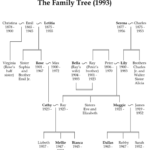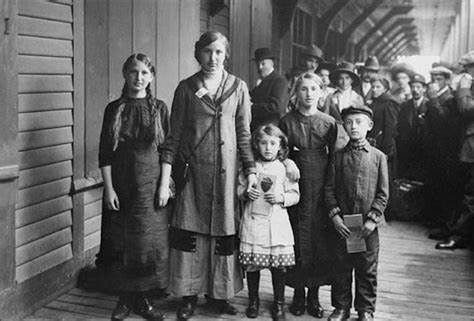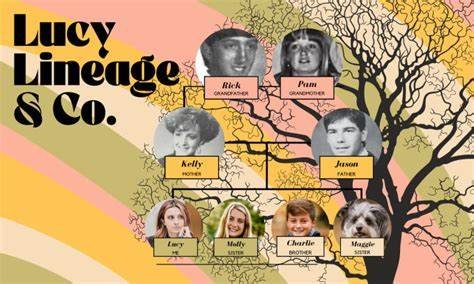Immigration has had a profound impact on family names throughout history, shaping the identities of individuals and families across generations. As people moved from one country or region to another, they brought their surnames with them, often modifying them to adapt to new languages, cultures, and circumstances. These changes have had lasting effects on the family names we recognize today. Understanding how immigration influenced family names can provide valuable insights into the migration patterns and cultural exchanges that shaped our global community. Let’s explore how immigration has impacted family names throughout history.
1. Anglicization of Surnames in English-Speaking Countries
One of the most significant ways immigration affected family names was through the process of anglicization. Immigrants from non-English-speaking countries, particularly during the waves of European migration to the United States, Canada, and Australia, often had their names altered by authorities or voluntarily changed to sound more “English” or easier to pronounce. This was particularly common for those coming from regions where languages such as German, Italian, or Eastern European languages were spoken.
For example, a German surname like “Schmidt” (meaning “smith”) might be anglicized to “Smith,” while a French surname like “LeBlanc” might be simplified to “White.” These changes were often made at immigration checkpoints or even at the request of immigrants themselves, who wanted to assimilate into their new societies. The anglicization of surnames is still evident today, with many families bearing modified versions of their original names.
2. The Impact of Name Changes at Ellis Island
During the mass immigration to the United States in the late 19th and early 20th centuries, millions of immigrants passed through Ellis Island in New York. This immigration hub was notorious for the changes made to family names during processing. While many immigrants kept their original surnames, others were forced to modify or shorten them. In some cases, names were misspelled by clerks who could not accurately record foreign names. The reasons for these changes ranged from clerical errors to attempts to make the names easier for English speakers to pronounce.
Some immigrants chose to shorten their surnames to avoid discrimination or to sound more American. For example, a long and complex surname like “Kozlowski” might be simplified to “Koz” or “Koss.” This desire to blend in and avoid the stigma of being foreign led to the alteration of many family names. As a result, many descendants of immigrants today are unaware of the original forms of their family names.
3. Adapting Surnames for New Languages and Alphabets
Immigrants often had to adapt their surnames to fit the alphabet and phonetic rules of the language they were moving to. For example, individuals with Slavic surnames, which often use characters not found in the Latin alphabet, would modify their names to accommodate new spelling conventions. A surname like “Vlach” might become “Wlach” or “Vlak” when the family moved to an area that used the Latin alphabet.
Similarly, immigrants from countries with different linguistic systems, such as those from China or Japan, might modify their names to conform to Western-style surnames or adopt new surnames altogether. Chinese immigrants, for instance, often changed their names to single characters or Anglicized versions, such as changing “Li” to “Lee” or “Wang” to “Wong.” This was done both to simplify pronunciation and to avoid discrimination in societies where people with non-Western names faced prejudice.
4. The Role of Immigration in Preserving Cultural Heritage
While many immigrants anglicized or modified their family names, others made a conscious effort to preserve their original surnames to maintain a connection to their cultural heritage. For many immigrants, their family name was a symbol of their identity and ancestry. In some cases, they opted to keep their original names intact, even when faced with pressure to change them. These individuals and families worked hard to ensure that their cultural traditions were passed down through the generations.
The retention of family names played an essential role in preserving the unique histories and identities of immigrant groups. For example, Italian immigrants often retained their surnames, despite the challenges posed by language barriers and discrimination. As a result, many Italian-American families still carry the same surnames that their ancestors brought with them when they immigrated, keeping alive the Italian heritage of their forebears.

5. Immigration and the Formation of New Family Names
In some cases, immigration led to the creation of entirely new family names. This could happen for a variety of reasons, such as clerical errors, the desire to escape the stigma of a surname, or the influence of local traditions. Some immigrants simply chose new names for themselves to mark their new beginning in a foreign land. In the United States, this process was not uncommon, particularly in the 19th century, when individuals fleeing poverty or persecution often embraced new identities as part of their journey to build a better life.
For instance, families that immigrated from rural parts of Europe might have changed their surname to reflect their new occupation in America. A farmer might take the name “Gardener” or “Farmer,” while a family working in the textile industry might adopt the surname “Weaver.” These names were often a way to assimilate into American society and to gain access to better economic opportunities.
6. The Legacy of Immigration on Family Names Today
The impact of immigration on family names continues to be felt today. Many families with immigrant backgrounds carry surnames that tell a story of migration, adaptation, and resilience. As society becomes more diverse, there is growing interest in rediscovering and preserving these family names and their histories. Some people are now turning to genealogical research and DNA testing to trace the origins of their surnames, discovering the rich cultural tapestries behind their family names and understanding how their ancestors navigated the challenges of immigration.
Conclusion
Immigration has significantly impacted family names throughout history, with many surnames altered, simplified, or created as a result of migration. Whether through anglicization, the adaptation of names to fit new languages, or the preservation of cultural heritage, immigration has played a pivotal role in shaping the surnames we recognize today. Understanding these changes can offer valuable insights into the journeys of our ancestors and the ways in which they navigated the challenges of moving to a new land. By studying the evolution of family names, we can learn more about the personal stories behind our surnames and the lasting impact of immigration on our identities.











